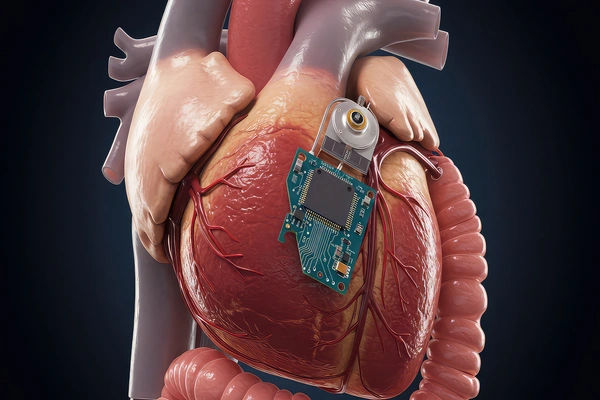- male
- 65 Years
- 20/02/2025
My INR levels have been all over the place latelyone month it's at 2.5, and then the next it's down to 1.5. My doctor keeps changing my medication dose, and honestly, I'm getting worried. If this continues, could it cause problems with my mechanical valve in the aortic position? I do an echo each year, but I'm still concerned. Can you explain how this might affect me?
Answered by 1 Apollo Doctors
Fluctuating INR levels can indeed be concerning, especially for patients with a mechanical heart valve. It is important to maintain a stable INR to prevent complications such as blood clots or bleeding. To help stabilize your INR levels, your doctor may consider prescribing a medication like Warfarin. It is crucial to follow your doctor's instructions regarding dosage adjustments based on your INR levels. If your INR continues to fluctuate, it can increase the risk of blood clots forming on your mechanical heart valve. This can potentially lead to serious complications such as valve malfunction or stroke. Regular echocardiograms are essential for monitoring the function of your mechanical valve and detecting any issues early. To help stabilize your INR and protect your mechanical heart valve, it is important to adhere to your prescribed medication regimen and attend regular follow-up appointments with your healthcare provider.
Dr. Ranjith Suggests...
Consult a Cardiologist
Answered 25/07/2025
0
0

More Cardiology Health Queries
View allIs a pacemaker a good option for my dad? He's 61 and had a heart attack in March. His lvef was 15 at the time, and he's also diabetic. I'm worried about his condition and wondering if a pacemaker would really help.
A pacemaker may be helpful in your father's condition, especially if he has a low ejection fraction (15%). In cases of heart attack and heart failure, a pacemaker can help regulate the heart's rhythm and improve its overall function. Additionally, since your father is diabetic, it is important to manage both conditions effectively. In this case, along with a pacemaker, medications such as ACE inhibitors, beta-blockers, and diuretics may also be prescribed to help improve heart function and manage diabetes. It is important for your father to follow a healthy lifestyle, including a balanced diet, regular exercise, and monitoring of blood sugar levels. Please consult with your healthcare provider for a personalized treatment plan and to discuss the specific brand names and dosages of medications suitable for your father's condition.
Answered by 1 Apollo Doctors
My recent CRP levels came back high, and I'm pretty worried about what that means for my health. Is there a chance this could lead to something like a heart attack or even cancer? I'm not sure what steps I should take next. Could you give me some advice on how to handle this?
Elevated CRP levels can indicate inflammation in the body, but it is not specific to any particular condition such as cardiac arrest or cancer. It is important to consult with a healthcare provider for a proper evaluation and diagnosis. In the meantime, you can consider taking over-the-counter pain relievers such as acetaminophen (Tylenol) to help with any discomfort. Make sure to follow the recommended dosage instructions on the packaging.
Answered by 1 Apollo Doctors
I've been noticing some strong heartbeats and chest pain on my left side after I eat. I don't have any other symptoms, but it's kind of worrying. I had a stress echo and an ECG done about three months ago, and everything was normal. What do you think could be going on?
It sounds like you may be experiencing symptoms of heart palpitations and chest pain after eating. Since your stress echo, echo, and ECG done 3 months ago were normal, it is less likely to be related to any serious heart condition. However, these symptoms could be due to acid reflux or gastritis. I recommend trying over-the-counter antacids like Tums or Rolaids for relief. You can also try avoiding spicy and fatty foods, eating smaller meals, and not lying down immediately after eating. If the symptoms persist or worsen, please follow up with your doctor for further evaluation.
Answered by 1 Apollo Doctors
Disclaimer: Answers on Apollo 247 are not intended to replace your doctor advice. Always seek help of a professional doctor in case of an medical emergency or ailment.




.webp)